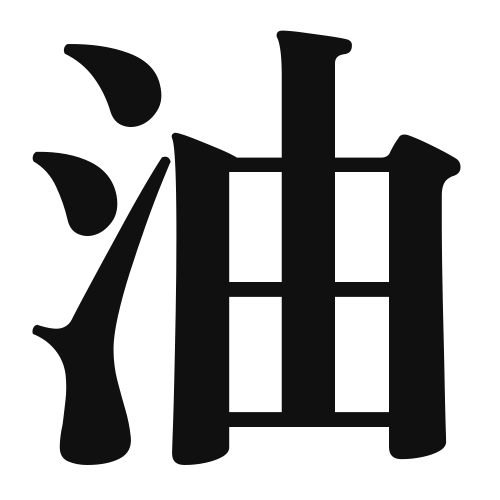1. Overview of Meaning
The kanji “油” (yū) means “oil” in English. It refers to various types of oil, including cooking oil, essential oils, and petroleum products. It is commonly used in both culinary and industrial contexts.
2. Formation and Radicals
The kanji “油” is a phono-semantic compound (形声文字), which means it combines both a phonetic and a semantic component. The left part, “氵” (water radical), suggests a connection to liquids, while the right part, “由” (yuu), provides the pronunciation.
The radical for “油” is “氵” (water), indicating its association with liquid substances.
3. Examples of Usage
Common words and phrases that include “油” are:
- 食用油 (shokuyouyuu) – cooking oil
- オリーブ油 (oriibu-yuu) – olive oil
- 石油 (sekiyu) – petroleum
Example sentences in daily conversation:
- この料理には食用油が必要です。 (Kono ryouri ni wa shokuyouyuu ga hitsuyou desu.) – This dish requires cooking oil.
- オリーブ油は健康に良いです。 (Oriibu-yuu wa kenkou ni yoi desu.) – Olive oil is good for health.
4. Synonyms and Antonyms
Similar kanji with related meanings include:
- 脂 (shiba) – fat, which refers to animal fat or grease, differing from “油” which is more about liquid oils.
Antonyms include:
- 水 (mizu) – water, as it is a liquid but does not have the oily properties of “油”.
5. Cultural and Historical Background
The kanji “油” has significant relevance in Japanese culture, especially in cooking and traditional medicine. It is often associated with health and nutrition.
Proverbs and idiomatic expressions include:
- 油断大敵 (yudan taiteki) – “Carelessness is a great enemy,” emphasizing the importance of being cautious.
